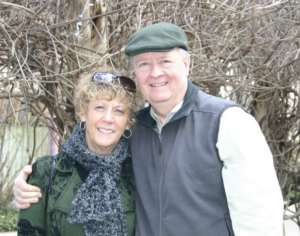“But you, Bethlehem Ephrathah, though you are small …” – Micah 5:2
For such a small place, Bethlehem holds a mountain of meaning. The Hebrew word has two parts. The first part is the usual word for house, but it has connotations of family. It can also mean temple. “Bethel” in the Bible means “House of God.”
The second part of Bethlehem is the Hebrew word for bread, but this bread is not just the side item on your plate. It is what Jesus was talking about when he taught us to pray, “Give us today our daily bread.” This bread is the difference between life and death.
There is another connotation to that second part of the word Bethlehem. Sometimes, it can mean “to do battle or fight.” It is not the usual meaning attached to the name, but there is this strong connection.
When we put all that together, something like a little miracle emerges in what God has woven into the name of the place where Jesus was born. Jesus, the Bread of Life, was born in a place called “House of Bread.” The one who did battle with death itself and won, who was raised to victory after three days in a grave, was born in a place called “House of Battle.”
God chose a seemingly insignificant place, Bethlehem, and there he created the Bread of Life and the One who would defeat death. And on the night he gave himself up for us, Jesus lifted up the very symbols of a bakery and a battleground — bread and blood.
Christmas and Easter really do belong in the same breath.
And when we place our trust in Him — this God-man who is spiritual food for us and who promises to do battle in the spiritual realm for us – we are born spiritually into his family and become members of the House of God. Our birthplace then becomes Bethlehem just as surely as his was.
Bethlehem. It is a place of possibility, a place of new birth, a place where we are fed, where we are protected, where we are home.
(This post was first published in December, 2012, on fivestones.com)








